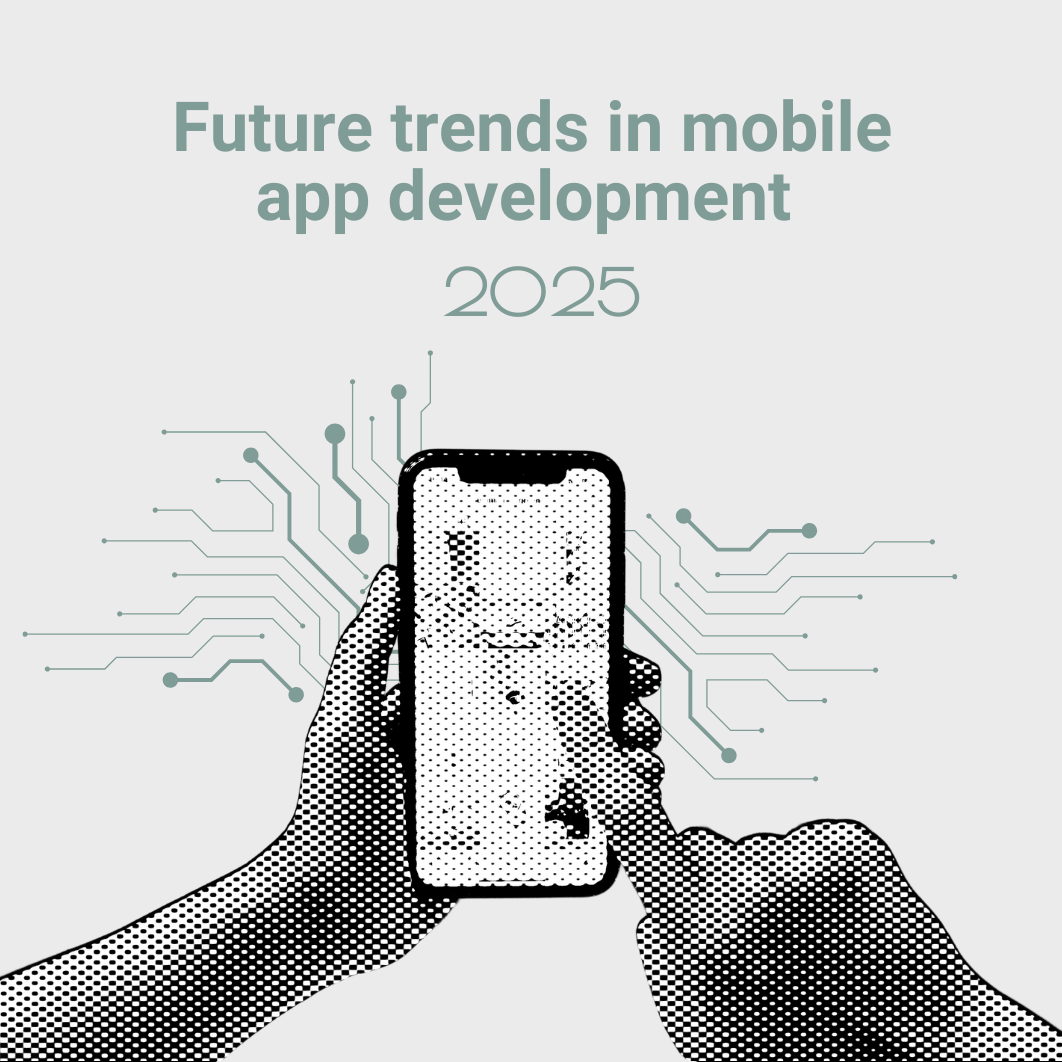The New Era of AI in 2025: From Gemini 3 to Creative AIs
Learn about the best AI tools for 2025, including Nano...
We use cookies for our website to give you the most relevant experience by remembering your preferences. By clicking “accept”, you consent to use of ALL the cookies
This website uses cookies to improve your experience while you navigate through the website. Out of these, the cookies that are categorized as necessary are stored on your browser as they are essential for the working of basic functionalities of the website. We also use third-party cookies that help us analyze and understand how you use this website. These cookies will be stored in your browser only with your consent. You also have the option to opt-out of these cookies. But opting out of some of these cookies may affect your browsing experience.
Necessary cookies are absolutely essential for the website to function properly. These cookies ensure basic functionalities and security features of the website, anonymously.
| Cookie | Duration | Description |
|---|---|---|
| cookielawinfo-checkbox-functional | 11 months | This cookie is set by GDPR Cookie Consent plugin. The cookie is used to store the user consent for the cookies in the category “Analytics”. |
| cookielawinfo-checkbox-functional | 11 months | The cookie is set by GDPR cookie consent to record the user consent for the cookies in the category “Functional”. |
| cookielawinfo-checkbox-necessary | 11 months | This cookie is set by GDPR Cookie Consent plugin. The cookies is used to store the user consent for the cookies in the category “Necessary”. |
| cookielawinfo-checkbox-others | 11 months | This cookie is set by GDPR Cookie Consent plugin. The cookie is used to store the user consent for the cookies in the category “Other. |
| cookielawinfo-checkbox-performance | 11 months | This cookie is set by GDPR Cookie Consent plugin. The cookie is used to store the user consent for the cookies in the category “Performance”. |
| viewed_cookie_policy | 11 months | The cookie is set by the GDPR Cookie Consent plugin and is used to store whether or not user has consented to the use of cookies. It does not store any personal data. |
Functional cookies help to perform certain functionalities like sharing the content of the website on social media platforms, collect feedbacks, and other third-party features.
Performance cookies are used to understand and analyze the key performance indexes of the website which helps in delivering a better user experience for the visitors.
Analytical cookies are used to understand how visitors interact with the website. These cookies help provide information on metrics the number of visitors, bounce rate, traffic source, etc.
Advertisement cookies are used to provide visitors with relevant ads and marketing campaigns. These cookies track visitors across websites and collect information to provide customized ads.
Other uncategorized cookies are those that are being analyzed and have not been classified into a category as yet.
Cyberia Tech, Inc. respects your privacy. This Privacy Policy explains how we collect, use, and share your information. By using our services, you agree to this policy. If any other agreements conflict with this Privacy Policy, the terms of those agreements prevail.
Cyberia Tech complies with the EU-US and Swiss-US Privacy Shield Frameworks for handling personal data from the EEA, UK, and Switzerland. In case of any conflict, the Privacy Shield Principles prevail. Learn more at Privacy Shield. Key Definitions
Information linked to an individual, transferred from the EEA, UK, or Switzerland to the U.S.
Data revealing race, religion, health, sexual orientation, and similar categories.
Effective Date: [ 2026 / 01 / 22 ]
Welcome to The Cyberia Tech ! By accessing or using our website or services, you agree to
comply with and be bound by these Terms of Use and our Privacy Policy. If you do not agree with
these terms, please do not use our Services.
Loading
0 %

Should I use AI in my mobile app? As mobile app development evolves, emerging technologies like artificial intelligence (AI), 5G connectivity, augmented reality (AR), and blockchain are reshaping the digital landscape. These advancements are driving apps to become more intelligent, personalized, and interconnected, creating new opportunities for businesses to enhance user experiences. AI, in particular, plays a crucial role in automation, predictive analytics, and personalization, while 5G enables faster and more responsive applications. AR is revolutionizing immersive experiences, and blockchain is strengthening security and transparency.
For startups and established companies alike, understanding how these technologies fit into their app strategy is essential. Integrating AI and other innovations can offer a competitive edge, but businesses must carefully evaluate their impact. As mobile apps continue to advance, staying informed about these trends will be key to long-term success.
The future of mobile app development 2025 will be largely defined by breakthrough technologies that will transform the way apps are built, experienced and extended. From smarter automation to enhanced user interaction, these technologies will provide endless opportunities for innovation and business growth.
Below are the key new technologies that will shape the mobile app industry in 2025:

AI and ML have already started transforming mobile applications, but their impact is becoming even more significant. If you’re wondering, Should I use AI in my mobile app?, the answer depends on how you want to enhance user experience and functionality. AI enables apps to be smarter, learning user behavior, predicting preferences, and delivering personalized content in real time. Features like voice recognition, chatbots, and recommendation engines are advancing rapidly, making interactions smoother and more intuitive.

AI-driven automation will also make app development more efficient by optimizing code generation, testing, and debugging, ultimately reducing time-to-market. As AI continues to evolve, businesses must evaluate whether integrating AI aligns with their app’s goals and user needs. Check out our other article to know all other tech strategies you should know in 2025 to stay ahead in your business.
The global rollout of 5G technology will revolutionize how mobile apps operate by offering ultra-fast speeds, lower latency, and greater opportunities. This will enable mobile apps to provide more responsive, data-rich, and immersive experiences. In 2025, 5G will empower apps across a wide range of industries, from gaming to healthcare. If you want to align your business with futuristic use of 5G read further list, if not and you are curious in overall trends you can skip two following heading.


The speed and reliability of 5G will create new opportunities for innovation in app development, pushing the boundaries of what’s possible in mobile technology.
AR and VR technologies are set to unlock new possibilities for mobile apps by blending digital content with the physical world. In 2025, AR and VR will move beyond gaming and entertainment to revolutionize industries like retail, education, healthcare, and real estate.
Retail apps will use AR to allow customers to virtually try on clothes or visualize furniture in their homes. Educational apps will deliver interactive and immersive learning experiences, while healthcare apps will offer remote surgery training or patient diagnostics through VR simulations. Enhanced mobile hardware and 5G will enable smoother, more immersive AR/VR experiences with minimal latency.
So if you are one of these or planning to be soon, read these solutions to have a cheat code.

Real Estate: Virtual VR property tours will save buyers and sellers time.
Security and data privacy will remain a top priority in 2025 and blockchain technology will play a key role in mobile app development. Blockchain’s decentralized and tamper-proof ledger guarantees secure data transactions and protects sensitive user information and financial data.

What Do Blockchain Applications Do in Mobile Apps:
Blockchain will not only protect user data but also enable trustless interactions, especially in finance, healthcare, and logistics.
In mobile apps, blockchain will facilitate secure payment systems, transparent supply chain management, and decentralized applications (dApps) that operate without centralized control. For example, fintech apps will integrate blockchain for secure transactions, while identity verification apps will use blockchain for secure digital identities. Smart contracts will also automate and secure business processes across various industries.
The IoT ecosystem is rapidly expanding, and by 2025, mobile apps will play a crucial role in managing and interacting with smart devices. IoT-enabled apps will connect seamlessly with smart homes, wearable devices, industrial sensors, and even smart cities, creating more efficient and interconnected systems.
Smart home apps will offer greater automation, allowing users to control lighting, security, and appliances remotely. In healthcare, IoT-integrated apps will monitor patients in real time, sending critical data to medical professionals. Industrial IoT (IIoT) apps will help manage operations, predict maintenance needs, and improve efficiency in manufacturing.

These emerging technologies—AI and ML, 5G, AR/VR, blockchain, and IoT—are reshaping the future of mobile app development in 2025. Businesses that embrace these innovations will be better equipped to deliver smarter, faster, and more secure user experiences. Adopting these trends will not only give companies a competitive edge but also pave the way for scalable, future-proof mobile solutions.
As mobile app development continues to evolve, businesses must adapt to new technologies like AI-driven personalization, 5G, enhanced security measures, and more. With these advancements, many developers and business owners are asking, “Should I use AI in my mobile app?” AI is playing a crucial role in making apps smarter, more efficient, and more user-friendly, shaping the future of mobile experiences. Those who embrace these innovations will be better positioned to create seamless, secure, and engaging apps while staying ahead of the competition.
But this is just the beginning. In Part 2, we’ll explore even more emerging technologies, including blockchain integration, the rise of decentralized apps (dApps), and how AI will continue to push app personalization and automation to new levels. Stay tuned to see how these advancements will further transform the app ecosystem and create new opportunities for growth. What do you think? Will AI be the right choice for your mobile app? And Which technology do you think will have the biggest impact? Share your insights in the comments and join the conversation!
You Can Get More Information!
